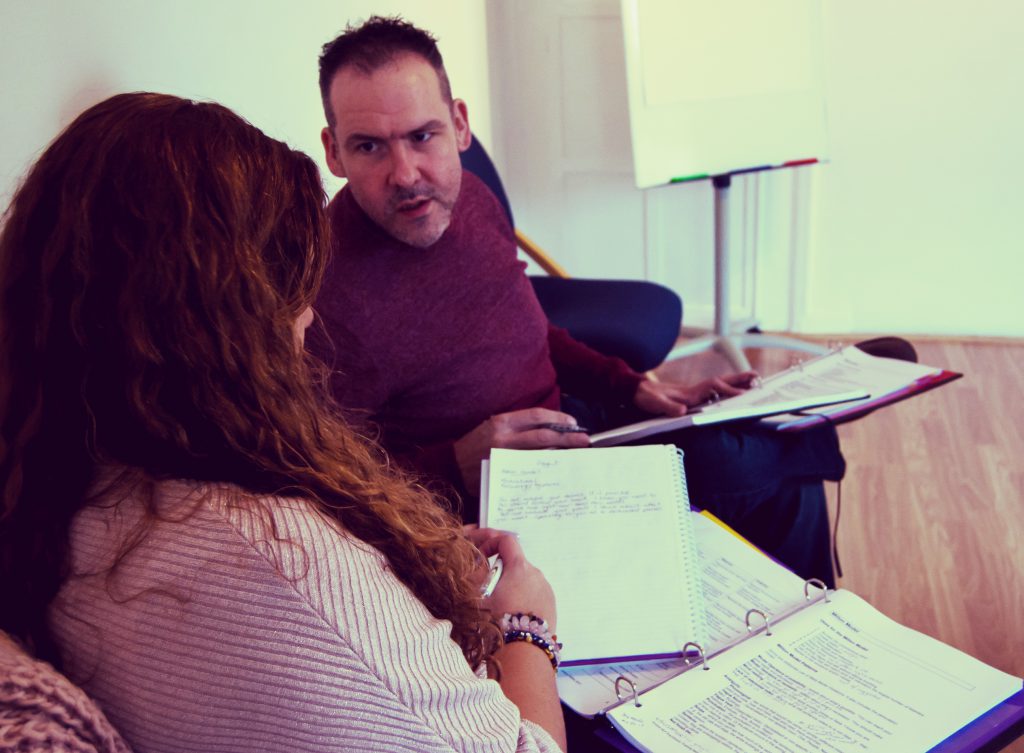
Being a great listener is such a great service to provide to your fellow humans. It’s actually be of the first things I teach on my NLP Practitioner Training. Everyone needs to be heard and the better you are at listening, the more your family and friends, even your business colleagues or workmates will open up to you and share their hopes, fears and concerns.
There is something so powerful about sharing our emotional life. We get to know and understand each other better and also we actually process our own emotions much more effectively when we share how we feel.
Here are five ways you can improve your listening skills:
1) Stop Speaking – Leave Space … for someone else to talk! If you don’t shut up the other person is unlikely to open up! Don’t feel the need to fill silence – it makes good thinking time which is essential for some. You might be be happy to process your thoughts out loud (that makes you an External Processor) but it’s not the same for everyone. Some people like to think things through before they share them (Internal Processor).
2) Be Interested. It’s not specifically about doing or saying certain things. When you have a genuine interest in hearing someone’s opinions or experiences, it shows up in so many aspects of Non Verbal Communication – your body posture, facial expression, tone of voice and people respond unconsciously to all of these. Give it a go and notice how much more you discover…
3) Keep Questions To A Minimum. While good questions can be really useful, unnecessary questions can interrupt the talker’s flow so, before you ask, make sure the question is helpful (to them not you). If someone is sharing their deepest and darkest with you, you don’t need to know the full details. Before you ask, check “Will this question help them reach greater understanding?” If not, then stop being nosey and get back to being a great listener!
4) Put Your Judgement Aside. This is crucial. Not just what you say but also your facial expressions, general body language and tone of voice.
If you have ever shared something important with someone you will know how you instinctively look for their reaction to what you say. So as a listener it’s super important to be able to listen openly and reserve judgement. Consider how off putting it can be when someone raises an eyebrow (or two), lets their chin drop to their chest, exclaims “What?!” in a high pitched tone or jumps out of their skin in reaction to what you say.
It hardly encourages you to say more – in fact it’s likely to have the opposite effect and shut down the conversation pretty quickly. Of course for any really good listener there will be times when what you are told does truly shock you, because great listening skills give people permission to talk freely. When this happens, maintain your best poker face and have a quiet word with yourself; it’s not your situation and your judgement is not required! The person telling it is the one living it, so do them the honour of listening so that they can work out what is the best way forward (for them, not you!).
5) “I Didn’t Know What To Say” While people generally understand the importance of listening, they often feel the need to have a response ready and can feel unqualified to provide it.
Don’t worry about how to respond. Being a great listener means being in the moment and paying attention to what’s being said. People often worry about saying the right thing in response but actually if someone has just shared something important with you, you have already done the right thing by providing the opportunity for them air their feelings. You don’t need to give advice or even an opinion. Acknowledging what they tell you is all you need to. The biggest benefit of talking comes from being able to share our emotional experiences with another. When we can do this, it helps us to process our emotions in a more useful way. As a listener all you need to do is to be there and to actively listen. That’s such a good thing to do for someone and they will feel all the better for being heard.
Being a great listener is such a great service to provide to your fellow humans. It’s actually be of the first things I teach on my NLP Practitioner Training. Everyone needs to be heard and the better you are at listening, the more your family and friends, even your business colleagues or workmates will open up to you and share their hopes, fears and concerns.
There is something so powerful about sharing our emotional life. We get to know and understand each other better and also we actually process our own emotions much more effectively when we share how we feel.






